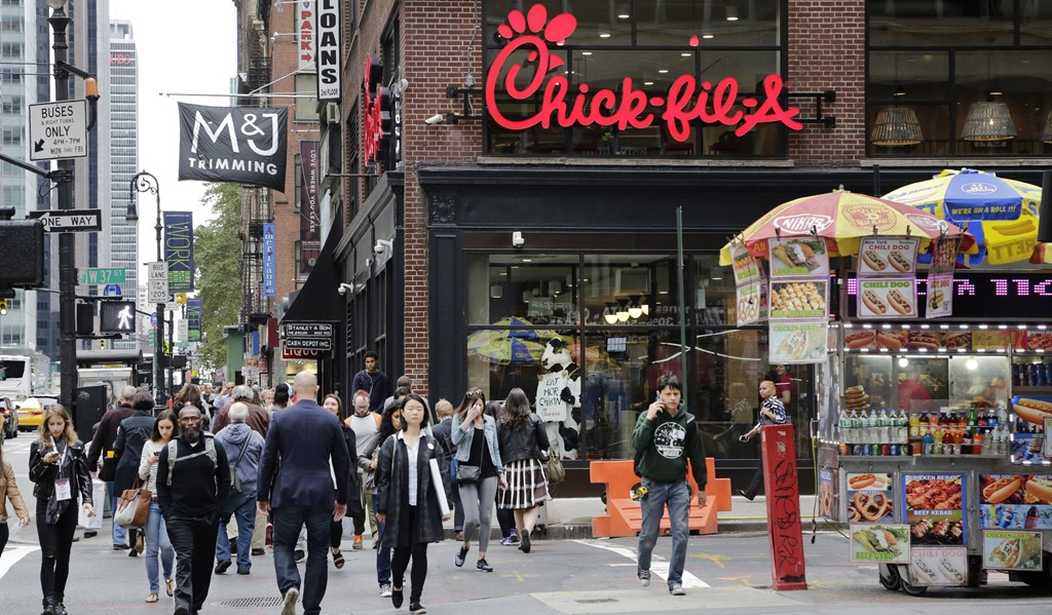If a physical structure for the National Media Hall of Shame existed, an entire wing would need to be devoted to all the wins (losses?) the New York Times has racked up over its 170+ year history.
Among them would be the debacle that stemmed from the now-infamous Tom Cotton op-ed that was published in the early days of the George Floyd riots in 2020, where the Arkansas Senator, a Republican, argued that the only way to quell the violence in Democrat-run cities on fire in the aftermath of Floyd's death was by having then-President Donald Trump invoke the Insurrection Act.
As RedState reported at the time, the piece greatly fauxfended woke Times reporters, some of whom rushed to the Twitter machine to allege, without evidence, that allowing Cotton’s argument to be published in their paper put their black colleagues “in danger.”
A “sick-out” was also staged in protest, because words are violence or something.
The ensuing very public brouhaha brought about the forced resignation of the paper's editorial page editor, James Bennet, who has since written extensively about his experiences there. Adam Rubenstein, the editorial assistant who was directly involved in editing the Cotton piece, resigned in December 2020.
Rubenstein, too, has a lot to say about what happened as well as the closed-minded culture in the Times news and opinion rooms. In a piece published Monday in The Atlantic, Rubenstein started right from the beginning of his tenure with the NYT, where he says the human resources department gave him a lot of grief during orientation over his love of... Chick-fil-A sandwiches:
On one of my first days at The New York Times, I went to an orientation with more than a dozen other new hires. We had to do an icebreaker: Pick a Starburst out of a jar and then answer a question. My Starburst was pink, I believe, and so I had to answer the pink prompt, which had me respond with my favorite sandwich. Russ & Daughters’ Super Heebster came to mind, but I figured mentioning a $19 sandwich wasn’t a great way to win new friends. So I blurted out, “The spicy chicken sandwich from Chick-fil-A,” and considered the ice broken.
The HR representative leading the orientation chided me: “We don’t do that here. They hate gay people.” People started snapping their fingers in acclamation. I hadn’t been thinking about the fact that Chick-fil-A was transgressive in liberal circles for its chairman’s opposition to gay marriage. “Not the politics, the chicken,” I quickly said, but it was too late. I sat down, ashamed.
"What's your favorite sandwich?"
— Charles C. W. Cooke (@charlescwcooke) February 26, 2024
“The spicy chicken sandwich from Chick-fil-A.”
"Wrong!" pic.twitter.com/4A72FSL11N
In addition to talking about how outraged Times staffers hung him out to dry over his role in fact-checking the op-ed prior to publication, Rubenstein - like Bennet has - confirmed the paper's liberal bias regarding conservative op-eds. He also pointed to one alarming statement from someone on the news side about how they approached quotes from Cotton:
A diplomatic correspondent, Edward Wong, wrote in an email to colleagues that he typically chose not to quote Cotton in his own stories because his comments “often represent neither a widely held majority opinion nor a well-thought-out minority opinion.” This message was revealing. A Times reporter saying that he avoids quoting a U.S. senator? What if the senator is saying something important? What sorts of minority opinions met this correspondent’s standards for being well thought-out? In any event, the opinion Cotton was expressing in his op-ed, whatever one thinks of it, had, according to polling cited in the essay, the support of more than half of American voters. It was not a minority opinion.
For the record, Wong denies this was a general quote about Cotton and says he was referring to China policy specifically.
Whatever the case may be, if what Rubenstein alleged happened to him during orientation was true, and I have no reason to doubt it, it just further proves the point that the New York Times simply cannot be reasoned with, no matter how much they claim that they want to hear what readers and critics alike have to say.
You aren't going to reform institutions that are holding Maoist struggle sessions over fast food
— Auron MacIntyre (@AuronMacintyre) February 26, 2024
You can destroy them or make them irrelevant
Those are the only options https://t.co/9To8lMJRKW
Making them irrelevant is a good place to start, but as for destroying them? Their critics don't have to do much on that front, because as it turns out, the Times staff is doing a fine job of that all on their own.














Join the conversation as a VIP Member